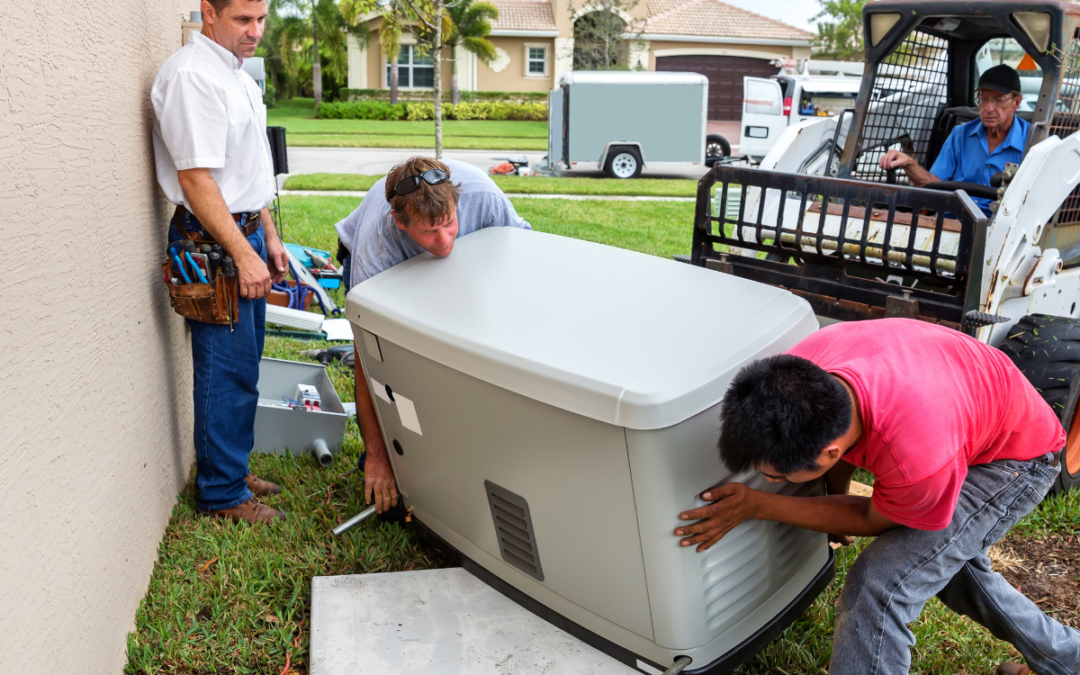How Can I Test My Standby Generator?
A standby generator is installed in a home or business to serve as a back-up energy system in the event of a power outage in the main electrical grid. Standby generators are designed to switch on automatically in the event of an outage, to ensure that you experience minimal inconvenience. If you have a standby generator system, or you are planning to install one, then it is recommended that you learn the proper methods to test your standby generator. By testing your standby generator regularly, you are ensuring that it is functioning properly, and it will be able to serve you well in the event of a power outage. We advise you to test your standby generators several times a year, especially if you are expecting a period of severe weather.
To test your standby generator, follow these steps below:
– Turn your mainline breaker off. Turning the mainline breaker off will cut off the power incoming from the main grid. This will trigger the automatic transfer switch to turn on your standby generator.
– Listen for the automatic transfer switch to turn your standby generator on. After cutting the power from your mainline breaker, the standby generator should turn on in a few seconds. If there is a considerable delay in the time it takes your standby generator to kick on, then you should take note.
– Leave your generator on for 15 minutes. Give your standby generator enough time to properly cycle on. Use this time to inspect your home’s appliance and devices to ensure that the power has been restored properly.
– Turn your mainline breaker back on. In a process similar to when you turned your mainline breaker off, turning the breaker on should trigger your standby generator to power off, allowing the main power grid to begin powering your house again.
It is important that you run through this process a few times every year to ensure that you have enough time to get your standby generator serviced before an outage event if you notice any issues or complications. If weather reports indicate that an upcoming event is expected in your area, such as an earthquake, hurricane, or severe thunderstorm, then it is a good idea to run through this test in preparation for an outage. If all is well, then you have peace of mind. But if you do run into any problems, then you give yourself time to either get your generator serviced, or make other preparations to ensure the security of your home or business.
As always, please feel free to consult our website if you have any further questions. If you notice any issues with your standby generator after running the test mentioned above, then you can certainly contact our team of industry professionals here at Northside Power. We are happy to answer your questions, or set up a site visit or consultation. Your safety and security is our top priority here, so we implore you to keep your standby generators properly tested and serviced.
Generator Shopping 101: Key Features Every Smart Buyer Should Consider
When it comes to purchasing a generator, the range of options can be overwhelming. Generators serve as a lifeline during power outages, supporting homes and businesses alike. Whether it’s for emergency backup, recreational use, or industrial purposes, choosing the...
The Vital Role of Routine Check-Ups for Optimal Performance
Generators stand as a cornerstone for reliability in various settings, from residential homes to critical infrastructure facilities. They ensure continuity and stability, providing power during outages and emergencies. However, like any sophisticated machinery,...
Maximizing Your Generac Lifespan
Generac generators have become synonymous with reliability and efficiency, offering peace of mind during power outages. Whether it’s for residential, commercial, or industrial use, a Generac generator ensures that your lights stay on, your appliances run, and your...
Generac Generators: DIY Repair Strategies
Generac generators are a staple in providing reliable power solutions for both residential and commercial settings. These generators ensure that your life remains uninterrupted during power outages. However, like any machine, they require regular maintenance and...
The Role of Generators in Winter Weather Survival
As winter blankets the world in snow and ice, it brings not only a serene beauty but also formidable challenges. One of the most significant of these is the frequent and often unpredictable power outages. During these times, the role of generators transitions from a...
Solar Power and Power Generator Solutions
In a world increasingly focused on sustainable and reliable energy solutions, the integration of solar power with traditional power generators presents a compelling synergy. This blend of renewable and conventional power sources offers both environmental benefits and...
Are Diesel Generators the Best Choice for Cold Climates?
In regions where the mercury plummets, maintaining a reliable power source is not just a convenience but a necessity. Diesel generators have long been a popular choice for providing backup power in cold climates. But are they the best option available? This blog post...
The Science of Staying Warm: How Power Generators Battle the Winter Chill
Winter’s arrival brings not just a drop in temperature but also the heightened risk of power outages. In these cold months, maintaining a steady supply of heat and power is more crucial than ever. This is where power generators come into play. In this detailed...

Essential Features To Consider When Buying Your Next Power Generator
Power outages are unpredictable and can happen at the most inopportune moments. Whether you’re running a business that requires uninterrupted power or simply want to ensure that your home remains functional during blackouts, investing in a reliable power generator can...
Troubleshooting and Repairing Common Power Generator Issues
Whether you rely on a power generator for emergency backup, recreational activities, or job-site power, experiencing problems can be a real inconvenience. Luckily, many common generator issues can be easily identified and resolved with some basic troubleshooting...


Recent Comments